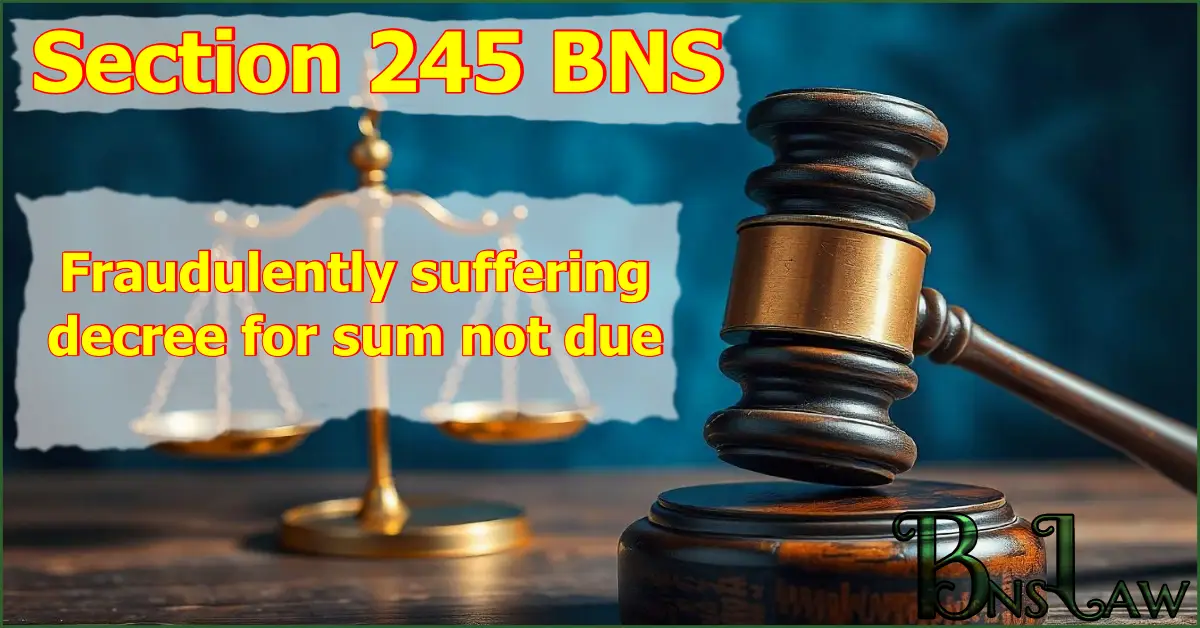Section 245 BNS | BNS 245
Whoever fraudulently causes or suffers a decree or order to be passed against him at the suit of any person for a sum not due or for a larger sum than is due to such person or for any property or interest in property to which such person is not entitled, or fraudulently causes or suffers a decree or order to be executed against him after it has been satisfied, or for anything in respect of which it has been satisfied, shall be punished with imprisonment of either description for a term which may extend to two years, or with fine, or with both.
Illustration
A institutes a suit against Z. Z, knowing that A is likely to obtain a decree against him, fraudulently suffers a judgment to pass against him for a larger amount at the suit of B, who has no just claim against him, in order that B, either on his own account or for the benefit of Z, may share in the proceeds of any sale of Z’s property which may be made under A’s decree. Z has committed an offence under this section.
READ OTHER SECTIONS OF CHAPTER XIV — OF FALSE EVIDENCE AND OFFENCES AGAINST PUBLIC JUSTICE
FAQs of BNS Section 245
-
245 BNS punishment and fine
Punishment and fine under Section 245 of the BNS: Imprisonment for 2 years, or fine, or both.
-
245 BNS cognizable or not
The offence under Section 245 of the BNS is non-cognizable.
-
245 BNS bailable or not
The offence under Section 245 of the BNS is bailable.
-
245 BNS trial court
Offence specified in Section 245 of the BNS is triable by the Magistrate of the first class.
Important Points
- Cognizable Offences: These are offences where a police officer can arrest a person without a warrant.
- Non-Cognizable Offences: These are offences where a police officer cannot arrest a person without a warrant.
- Bailable Offences: These are offences where the accused can get bail from the police station itself. All bailable offences are listed in the First Schedule of the Bharatiya Nagarik Suraksha Sanhita (BNSS).
- Non-Bailable Offences: Offences in which bail is not granted directly from the police station but after hearing the case in the court, the judge decides when bail will be granted. All non-bailable offences are listed in the first schedule of the Bharatiya Nagarik Suraksha Sanhita (BNSS).
- In the above FAQ, “trial court” means the court that has jurisdiction to try the offence.
- In the above FAQ, the expression “Magistrate of the first class” and “Any Magistrate” does not include Executive Magistrates.
Read other Sections of the BNS
Reference Link: New Criminal Laws (BNS), Ministry of Home Affairs







